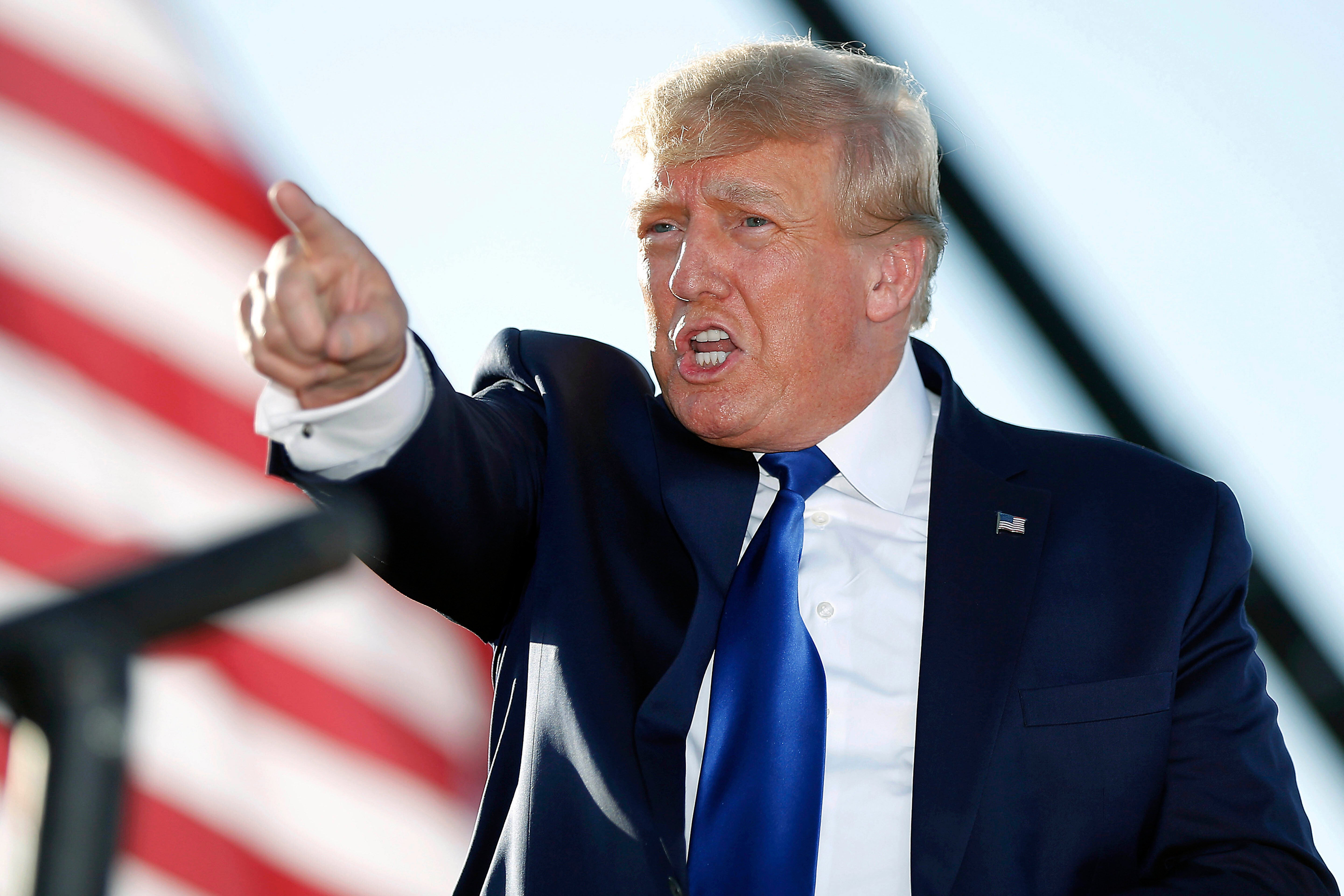Trump loses appeal, must testify in New York civil probe
A state appeals court court has ruled former President Donald Trump must answer questions under oath in New York state’s civil investigation into his business practices

Former President Donald Trump must answer questions under oath in New York state’s civil investigation into his business practices, a state appeals court ruled Thursday.
A four-judge panel in the appellate division of the state’s trial court upheld Manhattan Judge Arthur Engoron’s Feb. 17 ruling enforcing subpoenas for Trump and his two eldest children to give deposition testimony in Attorney General Letitia James' probe.
Trump had appealed, seeking to overturn the ruling. His lawyers argued that ordering the Trumps to testify violated their constitutional rights because their answers could be used in a parallel criminal investigation.
“The existence of a criminal investigation does not preclude civil discovery of related facts, at which a party may exercise the privilege against self-incrimination,” the four-judge panel wrote, citing the Fifth Amendment right against self-incrimination.
Message seeking comment were left with lawyers for the Trumps and with James' office. The Trumps could still appeal the ruling to the state’s highest court, the Court of Appeals.
James, a Democrat, has said her investigation has uncovered evidence Trump’s company, the Trump Organization, used “fraudulent or misleading” valuations of assets like golf courses and skyscrapers to get loans and tax benefits.
Thursday's ruling could mean a tough decision for Trump about whether to answer questions, or stay silent, citing his Fifth Amendment right against self-incrimination. Anything Trump says in a civil deposition could be used against him in the criminal probe being overseen by the Manhattan district attorney’s office.
At a hearing prior to Engoron’s Feb. 17 ruling, Trump’s lawyers argued that having him sit for a civil deposition is an improper attempt to get around a state law barring prosecutors from calling someone to testify before a criminal grand jury without giving them immunity.
A lawyer for the attorney general’s office told Engoron that it wasn’t unusual to have civil and criminal investigations proceeding at the same time, and Engoron rejected a request from lawyers for the Trumps to pause the civil probe until the criminal matter is over.
Last summer, spurred by evidence uncovered in James’ civil investigation, the Manhattan district attorney’s office charged the Trump Organization and its longtime finance chief, Allen Weisselberg, with tax fraud, alleging he collected more than $1.7 million in off-the-books compensation. Weisselberg and the company have pleaded not guilty.
___
Follow Michael Sisak on Twitter at twitter.com/mikesisak and send confidential tips by visiting https://www.ap.org/tips/
Bookmark popover
Removed from bookmarks